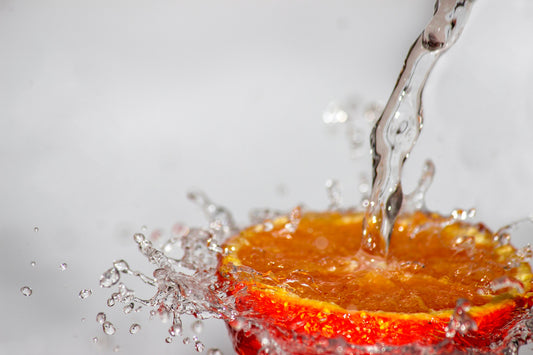- Alkaline Water Filters:
Alkaline water filters raise the pH level of water, making it more alkaline. These filters use a process called electrolysis, which separates the water into acidic and alkaline components. The alkaline water produced has a pH level higher than 7.
Benefits:
- Advocates of alkaline water say that it helps restore the body's pH balance, which can be disrupted by a modern diet and lifestyle.
- People who maintain a pH level of 7 are less likely to get sick & claim that when the body is in an alkaline state disease cannot grow.
- Alkaline water filters often generate water with increased antioxidant potential due to the presence of negatively charged ions, such as hydroxyl ions.
- Most people find alkaline water to be more refreshing to drink, and your body is able to absorb the hydration at a faster rate.
Drawbacks:
- While alkaline water filters can improve the taste and pH of water, they might not remove all contaminants. Its important to find a filter that has additional filtration methods.
- Alkaline water filters often need more regular replacement of filters and electrolysis plates.
- Ceramic Water Filters:
Ceramic water filters have the ability to remove impurities from drinking water. They mostly consist of a porous ceramic material that traps contaminants as water passes through it.
Benefits:
- Ceramic filters are the best at removing sediment, bacteria, protozoa, and other particles from water, they’re a reliable source of purification.
- Ceramic filters have a longer lifespan compared to some other filtration systems, they can be easily cleaned and reused.
- Ceramic filters are suitable for various water sources, including tap water, well water, and even untreated water from natural sources like rivers or lakes.
Drawbacks:
- While ceramic filters are amazing at removing physical impurities, they may not be as effective in removing dissolved chemicals or heavy metals. A more advanced filter system may suit your household if these are concerns for you.
- Because of the porous nature of ceramic filters, the filtration process can be slower compared to other methods. This might be a consideration if you require larger volumes of water.
Conclusion:
If pH regulation and antioxidant properties are important to you, an alkaline water filter might be worth considering. However, if reliable filtration and removal of physical impurities are your primary concerns, a ceramic water filter is likely to be a more suitable choice.
Remember to consider factors like your water source, what purification level you want, maintenance requirements, and budget when making your decision. It is also worth mentioning that combining filtration methods, such as using a ceramic filter in conjunction with an alkaline water pitcher, can provide great water filtration all round.
Ultimately, the goal is to have access to clean, healthy drinking water!






